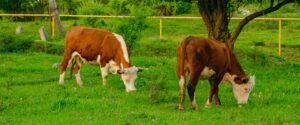
Protein is an essential macronutrient that plays a crucial role in muscle repair, hormone production, and overall health. However, the daily protein requirement for women varies based on several factors, including age, activity level, and specific health goals. Understanding the ideal protein intake helps women optimize their diet for better fitness, muscle maintenance, and overall well-being.
Recommended Daily Protein Intake for Women
The recommended daily protein intake differs depending on individual needs:
1. General Guidelines
- The Recommended Dietary Allowance (RDA) for protein for adult women is 46 grams per day (based on a sedentary lifestyle) or 0.8 grams per kilogram of body weight.
- However, this amount may not be sufficient for women with active lifestyles, specific fitness goals, or health conditions that demand higher protein intake.
2. Protein Needs Based on Activity Level
- Sedentary Women: 0.8 g per kg of body weight (~46g per day for a 57 kg woman).
- Active Women: 1.2 – 2.0 g per kg of body weight (~68-114g per day for a 57 kg woman).
- Athletes & Bodybuilders: 1.6 – 2.2 g per kg (~91-125g per day for a 57 kg woman).
- Pregnant & Breastfeeding Women: 1.1 – 1.3 g per kg (~71-100g per day).
- Women Over 50: 1.0 – 1.2 g per kg (~57-68g per day) to prevent muscle loss.
Factors Affecting Protein Needs
Several factors influence how much protein a woman should consume:
1. Age & Hormonal Changes
- As women age, muscle mass naturally declines, increasing protein requirements.
- Postmenopausal women require more protein to maintain bone and muscle strength.
2. Fitness & Exercise Goals
- Women engaging in strength training or endurance sports need more protein for muscle recovery and growth.
- High-protein diets help maintain lean muscle mass and support weight loss efforts.
3. Health Conditions & Medical Needs
- Women with conditions like osteoporosis, metabolic disorders, or recovering from surgery may benefit from increased protein intake.
- Those with kidney disease should consult a doctor before increasing protein intake.
Best Sources of Protein for Women
Women can meet their protein needs through various sources:
1. Whole Food Protein Sources
- Animal-Based: Chicken, turkey, fish, eggs, dairy (Greek yogurt, cheese, milk).
- Plant-Based: Lentils, chickpeas, quinoa, tofu, tempeh, nuts, seeds.
2. Protein Supplements for Women
Protein powders and supplements can be beneficial for women who struggle to meet their daily protein intake through food alone. Popular options include:
- Whey Protein: Fast-digesting, great for post-workout recovery.
- Casein Protein: Slow-digesting, ideal for nighttime muscle repair.
- Plant-Based Protein: Pea, hemp, and brown rice protein for vegans.
- Collagen Protein: Supports skin, hair, and joint health.
Choosing the Right Protein Powder for Women
When selecting a protein supplement for females, consider:
- Ingredients: Look for high-quality protein sources with minimal additives.
- Digestibility: Choose lactose-free or plant-based options if dairy causes digestive issues.
- Purpose: Select a formula suited to your fitness goals (muscle building, weight management, or recovery).
Conclusion
Protein powder for women, protein supplements for females, supr. The daily protein requirement for women varies based on lifestyle, activity level, and health status. While whole foods should be the primary protein source, supplements can help bridge the gap. Understanding individual needs ensures optimal nutrition, muscle maintenance, and overall well-being.






